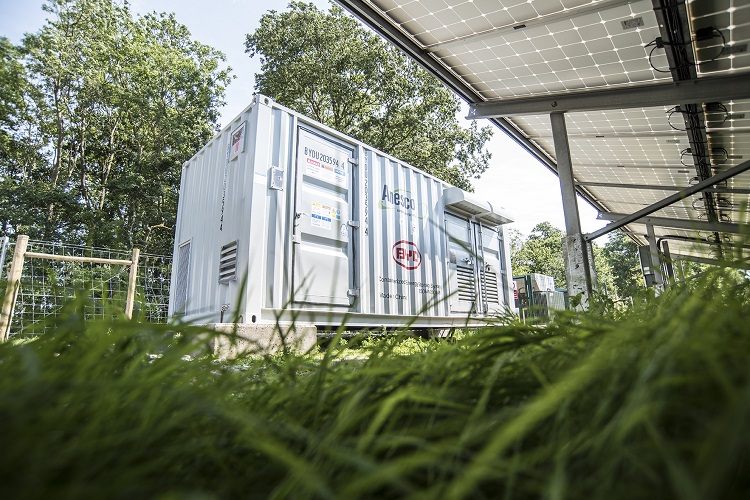“Now it is up to us, here in the Parliament of Australia, to get on with it”. That was the sentiment being delivered from the Prime Minister earlier this week, following the results of the same-sex marriage survey. Malcom Turnbull has now promised to act upon these results swiftly, legalising same-sex marriage, making Australia the 26th, and last of the English-speaking countries to do so. While many are sceptical of the timeframes being stipulated by the Prime Minister, his pro-active response was nonetheless encouraging.
While such efficient adherence to public opinion is rare in parliament, nowhere is it scarcer than in the energy sector. According to the ‘Energy Storage Forecast 2017-2030’ by Bloomberg New Energy Finance, released earlier this week, Australia is set to play a key role in an exponential market expansion over the next 15 years. According to the report, the global energy storage market is due to double more than six times between now and 2030, with Australia being one of eight countries expected to contribute 70% of the growth.
These findings come just weeks after the Turnbull government’s controversial dumping of the Renewable Energy Target beyond 2020, sparking fears of new investment back into coal and gas generation, whilst guaranteeing a reduced incentive for utility level energy storage, and zero incentive for residential.
While some investment into storage is still likely to occur, to assist with dispatchability of renewable generation, the National Energy Guarantee (NEG) as an enabling piece of legislation for renewables pales in comparison to its predecessor.
Countries accompanying Australia in the group of eight identified by Bloomberg New Energy Finance, provide some specific examples of progressive energy policy, the likes of which the Australian public have been vying for. In Germany, interest-free loans are offered to those looking to install storage units, the U.K the government is investing £246 million (A$430 million) into battery research, and in March 2016 the central Chinese government released a fifteen-year ‘Energy Technology Innovation Action Plan’, aiming to progress research into advanced energy storage.
Supporting the notion that Australis’s inclusion on this list is somewhat bewildering, is the damning results of the annual ‘Climate Change Performance Index’, from Germanwatch – a sustainable development NGO. The results, which were compiled by 300 international analysts, ranked Australia as one of the world’s worst performing countries, with regards to climate action. Of the 56 countries analysed, only South Korea, Iran and Saudi Arabia performed worse than Australia.
What the government’s recent policy announcements epitomise, is the disparity between public and governmental ambition in this sector. Whilst the statistics highlighting Australia’s ineptitude in energy policy stack up, so do the contrary figures reflecting the publics enthusiastic endorsement of renewables.
The latest survey from The Lowy Institute, states that 81% of the Australian public want the government to focus more on renewables, even if it results in higher energy costs. The Climate Council recently found that 74% of people surveyed believe battery storage will become commonplace in Australia within ten years, whilst 68% of those surveyed (who currently have solar panels), were considering adding a battery – a significant number when you consider that around one-in-five Australian homes now has solar panels.
With 77% of Australians recognising the importance of the discontinued Renewable Energy Target, it is clear that opinion on this issue transcends political allegiances, socioeconomic status and generational difference. Following the announcement of the NEG, the Prime Minister urged the public to ‘trust the experts’, despite having just ignored the clear recommendations of Chief Scientist Alan Finkel’s review.
While complete cohesion between parliament and public is virtually unheard of, the paradox presented by the Australian Energy Market seems unrivalled in its polarisation, with electoral opinion, scientific recommendations and shifting global trends unable to influence government policy. What is becoming abundantly clear is that in a country with much to lose from climate change that the responsibility for progress is falling squarely on the shoulders of the general public. The good news, they are eager to bear the weight.
This content is protected by copyright and may not be reused. If you want to cooperate with us and would like to reuse some of our content, please contact: editors@pv-magazine.com.








By submitting this form you agree to pv magazine using your data for the purposes of publishing your comment.
Your personal data will only be disclosed or otherwise transmitted to third parties for the purposes of spam filtering or if this is necessary for technical maintenance of the website. Any other transfer to third parties will not take place unless this is justified on the basis of applicable data protection regulations or if pv magazine is legally obliged to do so.
You may revoke this consent at any time with effect for the future, in which case your personal data will be deleted immediately. Otherwise, your data will be deleted if pv magazine has processed your request or the purpose of data storage is fulfilled.
Further information on data privacy can be found in our Data Protection Policy.